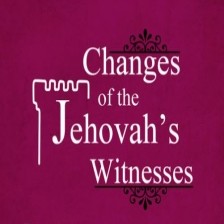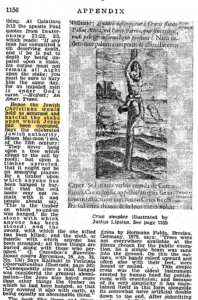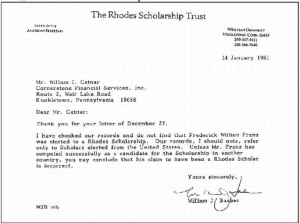Watchtower and What Is Truth?
The organization brands itself as “the truth.” By and large to the untrained ear this seems to be a casual saying. However, in the mind of the Watchtowerite, it carries a far deeper meaning. If you are a Jehovah’s Witness encountering someone that attends a mainstream church, when you say, “the truth,” you are inadvertently engaging in what’s called “loaded language.” By saying you have the truth, that means that everyone else has a lie. When I asked a pair of Witnesses something out of the New World Translation, they couldn’t answer the question specifically so they simply said, “well we have the truth.” I let it go and they were out in their vehicle 10 minutes later still trying to figure out what the appropriate answer was. Regardless, truth as defined is the following:
I’m going to spend much time speaking in relation to leadership. Here’s a quote I saw: The leaders of organized religion oppose the truth; and they do so because they are under the influence of Satan.
Prophecy. 1929 p. 312
Is that the case here?
So let’s examine truth according to the Watchtower from the leadership:
To start, let’s go on back to the days of Pastor Russell. I’m going to read from the booklets Some Facts and More Facts About the Self-Styled “Pastor” Charles T. Russell by Reverend J.J. Ross, published in 1913.
On the first two pages, we have the following statement: He never attended the higher schools of learning, knows comparatively nothing of philosophy, systematic,or historical theology, and is totally ignorant of the dead languages, and yet he is successful in making his disciples believe that the most difficult passages in the Old Testament and the book of Revelation are as simple as a sunbeam to him.
This is a pretty strong statement early on. Looking a little further into it, perhaps a reason Russell was so adamant against higher education for teaching evolution is the fact that he never attended an institution himself. Looking at theology, Russell himself would appear to have “borrowed” things from other people. I’m going to focus on a statement being ignorant of “language.”
The following is from a court trial that was held in March of 1913: “Under the examination, he admitted that, at most, he had attended school only seven years of his life, that the public school, and that he had left school when he was about fourteen years of age, just at the opening of the adolescent period, when the directional element is so necessary in a boy's life. "Do you know the Greek"? Asked the Attorney. "Oh, yes," was Russell's reply. Here he was handed a copy of the New Testament in Greek, by Westcott & Hort, and asked to read the letters of the alphabet as they appear on the top of page 447. He did not know the alphabet. "Now," asked Mr. Staunton, "Are you familiar with the Greek language?" "No," said Mr. Russell, without a blush. When he saw that he was caught, then he admitted that he knew nothing about Latin, and Hebrew and neither had he ever taken a course in Philosophy, Systematic Theology and neither had he ever attended any of the higher schools of learning.”
Interestingly Westcott & Hort will show up later.
The next president is of course Judge Rutherford. He was sentenced to jail but did you get the entire story? If you’ve read your Proclaimer’s of God’s Kingdom book, you’d see the following on page 720:
They were imprisoned and sentenced to 20 years. However, they were released from prison. Why?
The clergy-inspired opposition came to a head on May 7, 1918, when U.S. federal warrants were issued for the arrest of J. F. Rutherford and several of his close associates. By mid-1918, Rutherford and seven associates found themselves in the federal penitentiary in Atlanta, Georgia.
Proclaimer’s of God’s Kingdom. 1993 p. 70
1919 The Society’s officers and associates are released on bail, on March 26; on May 14 the court of appeals reverses the decision of the lower court, and a new trial is ordered; the next year, on May 5, the government withdraws from the case, declining to prosecute.
What is not said is there was language that violated the Espionage Act during World War I.
The blame for the present day Witness is laid at the feet of the clergy. I have a website that has information but doesn’t have a source. With that, here’s what it says:
THE FACTS: The Society’s attorneys were successful in showing cause that there were “errors” made in trial … based on many exceptions and objections made by the defense attorneys ... and allowed by the trial judge in an effort to protect their rights. In law, the term “Exonerated” is not found … at least I have never been able to find a legal definition of exoneration. Rather, when a person has been wrongfully convicted and later deemed innocent, they are given a “Pardon” … because legally, a “Pardon” is used in criminal law to both “forgive” the guilty and to release the innocent … a pardon assures that if there was any possible crime, it was forgiven too.
What then did the Government do? The Government issued what is called a WRIT OF ERROR. This merely means that the Government agrees and recognizes that “errors” were made in trial, and that it is not saying the defendants are innocent, but rather, that the defendants will have to be retried to correct the errors. The Government decided that since the war was over, it was not worth it to try the case again, though they could have.
Taken from: Free Minds
Here's more:
Since the administration of Knorr took the focus off of one person, I wanted to just look for a few minutes at the Kingdom Interlinear Translation. Remember how I mentioned earlier Westcott and Hort? Well they are back. In the forward it says the following: Presenting a literal word-for-word translation into English under the Greek text as set out in "The New Testament in the Original Greek. How literal is this? Here are just some of the things I’ve noticed that the Watchtower has done in it:
Underserved kindness is used in the Greek side. The term should be “grace.”
Jehovah is used 237 times even though the society admitted in the Aid To Bible Understanding, Jehovah wasn’t used until 1271.
There are other instances but one I wish to focus on is a work by Justus Lipsius. The work is De Crux Libre. Page 1156 of the KIT has this:
However what you will see when you look through the actual book is that this is not the case. https://archive.org/details/ivstilipsidecruce00lipsuoft is a link for the book. Pages 650 and 661 are the two pages that Justus explicitly quotes Pope Innocent III with the following words, “In the Lord's cross there were four pieces of wood, the upright beam, the crossbar, a tree trunk (piece of wood) placed below, and the title (inscription) placed above.
So again, we have an account where the Watchtower has been dishonest after being right in the early days since Russell and for part of Rutherford’s leadership, Jesus was on a cross.
The next two events deal with Franz who has developed important doctrinal revisions that are adhered to today in the Revelation Climax book. Viewed by some as a prominent theologian within the Watchtower, he was one who on the surface shunned higher education himself with the following on his background:
Frederick William Franz was born in Covington, Kentucky, U.S.A., on September 12, 1893. In 1899 the family moved to Cincinnati, where Frederick graduated from high school in 1911. He then entered the University of Cincinnati, taking a liberal arts course. He had decided that he would become a Presbyterian preacher, so he vigorously applied himself to the study of Bible Greek. At the university Frederick was chosen to receive a Rhodes scholarship, qualifying him for admission to Oxford University in England. However, before an announcement could be made, Frederick lost all interest in the scholarship and asked that his name be dropped from the list of contestants. The picture below says something contrary.
Proclaimer’s of God’s Kingdom. 1993 p. 111
The second deals with a legal proceeding. For this we will go to 1954. The Douglas Walsh Trial.
The important part is on November 24, 1954. Here’s what it says:
Q: Have you also made yourself familiar with Hebrew?
A: (Franz) Yes.
Q: So that you have a substantion linguistic apparatus at your command?
A: Yes, for use in my biblical work.
Q: I think you are able to read and follow the Bible in Hebrew, Greek, Latin, Spanish, Portuguese, German, and French?
A: Yes.
—-LATER, DURING THE SAME CROSS-EXAMINATION:
Q: You, yourself, read and speak Hebrew, do you?
A: I do not speak Hebrew.
Q: You do not?
A: No.
Q: Can you, yourself, translate that into Hebrew?
A: Which:
Q: That fourth verse of the second chapter of Genesis?
A: You mean here?
Q: Yes.
A: No.
So again what we have here is a case here where within Witness circles, he is a genius, in court, he perjured himself.
Jackson lied to the Australian Commission
Most recently Geoffrey Jackson was examined by the Austrian Commission. The following is the title of the article: Royal Commission’s Angus Stewart accuses Watchtower Representative of Deliberate Deception.
Now that is the leadership. What about you? Do you truly tell people when you go from door to door that part of the reason is that your eternity as the Watchtower teaches it is dependent upon you doing this? When you say you’re going to talk about the “good news of the kingdom being established in 1914,” how much do you tell the householder they will have to do just to have a chance to live on a paradise earth? What you know as a Witness, how much is hidden from them?
Let’s take a look at what the bible says through one individual-Jesus Christ. For this, turn to John 14:6. It says, John said to him: “I am the way and the truth and the life. No one comes to the Father except through me (NWT). The irony here is that “the truth” is not found in an organization but only within an individual. What is the biblical support for saying the organization is the truth vice an individual.
Contrasting that with Watchtower theocratic warfare. Truth can be hid. Here are some of the ways information is hidden from you (it can be obtained though searching the internet):
- Body of Elders Letters
- Shepherd the Flock of God
- Possible child exposure to abusive individuals: Bill Bowen on Silent Lambs
A current trend is consistently refusing comment when legal issues are raised. Biblically speaking, there is only one account of this happening. Jesus did that in Mark 15:5, But Jesus made no further answer, so that Pilate began to marvel (NWT). and it raised amazement not more questions. However, we have the exact opposite with this organization. Since Jehovah’s spirit is guiding, should they be able to answer clearly and concisely on a regular basis?
Since I enjoy reading “old light,” why does the organization hide it’s truth from you. The organization goes against what it said in The Watchtower May 15, 1957 p. 315: There is much in the way of spiritual riches and aids toward mature knowledge in these earlier publications, and their study is most certainly worth your time.
It’s hard to get “spiritual riches” when you can’t see it yet Brooklyn Bethel has a copy of everything. For what it’s worth, groups like the Mormons and Seventh Day Adventists allow their members to see material from the very beginning (although there are instances where it’s been altered).
As long as you allow yourself to stay under the guidance of this organization, you have no chance of having “the truth, the whole truth, and nothing but the truth.” The time is now for you to leave this organization.


